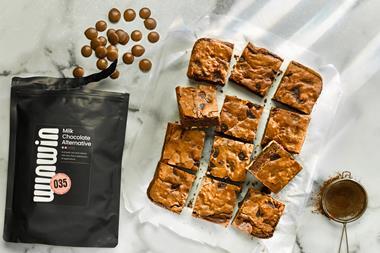Claims that some of Pret A Manger’s products were ‘natural’, when its sandwich bread contained artificial additives, have been banned by the advertising watchdog.
The Advertising Standards Authority (ASA) has upheld a complaint by the Real Bread Campaign (RBC) that Pret misled consumers by claiming its products avoided “the obscure chemicals, additives and preservatives common to so much ‘prepared’ and ‘fast food’”. RBC said this suggested Pret’s foods were free from artificial additives.
The complaint related to Pret’s Facebook page and its website. The website stated: “Pret creates handmade natural food ... doing the right thing ... naturally”; and “In 1986, Pret opened the doors of its very first shop. A shop with a mission. A mission to create handmade, natural food, avoiding the obscure chemicals, additives and preservatives common to so much of the ‘prepared’ and ‘fast’ food on the market today”.
The company made similar claims on its Facebook page.
In response to the RBC complaint, Pret said its ads did not claim it used only natural ingredients or that its food was additive- and preservative-free. It added that the ‘mission statement’ on its website should be seen as “an ideal state or their ultimate goal”.
Stating that it only claimed to “avoid” – as opposed to entirely eliminate – “obscure” chemicals, additives and preservatives, Pret confirmed its sandwich bread contained three E-numbers: E472e (diacetyl tartaric acid esters of mono and diglycerides), E471 (mono and diglycerides of fatty acids) and E300 (ascorbic acid). It said these were commonly found in many household brands of bread and were widely used in the industry to make sandwich bread.
%%Quote_25%%
Pret today (18 April), told British Baker its sliced sandwich bread contained two common emulsifiers to prevent slices falling apart when making a sandwich, and added vitamin C to help the dough rise.
"These are found in much of the bread sold in supermarkets and on the high street," said a spokesperson. "We would really like to find a solution and our food team has been working hard trialling recipes that do not use emulsifiers. They have not yet found one that meets the standards our customers expect."
The ASA concluded that, because the Facebook page and website contained claims that Pret’s food was “natural” when some products contained artificial additives, those claims were misleading and breached the advertising code.
Pret was told by the ASA that the material must not appear again in its current form, and that it must ensure its ads did not claim or imply food was “natural”, unless its products and ingredients were in line with consumer expectations of the term “natural”.
Real Bread Campaign coordinator Chris Young welcomed the ban.
“This sets a precedent that sends a clear message to food companies that, unless they walk the natural food walk, it’s misleading to talk the natural food talk. This ruling is good for shoppers whom the ASA is there to protect, and for the small, independent bakery and eatery owners who serve genuinely all-natural real bread sandwiches.”
The ASA did not uphold a second complaint by the RBC that Pret was misleading consumers by referring to its breads as being baked in-store, as the RBC understood the products were baked off-site and toasted in-store. The ASA said consumers were unlikely to interpret “baked in store” to mean only products that were made from scratch, and that consumers would expect this to include products cooked from frozen raw dough or part-baked dough.
































No comments yet